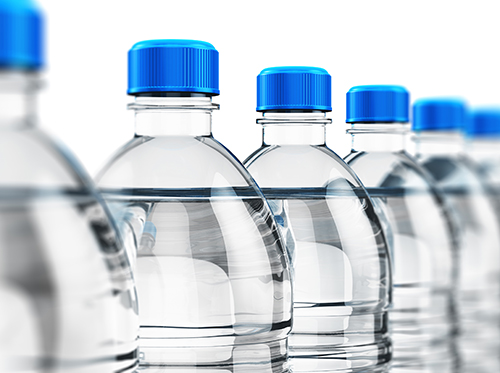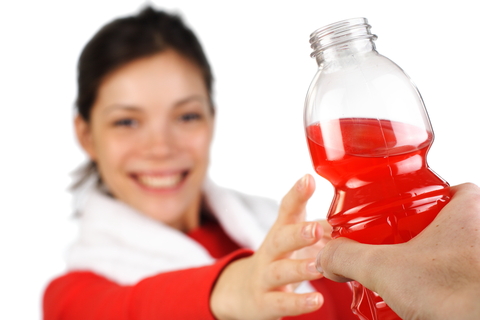May 1st, 2024

Some people choose bottled water over tap because they think it’s cleaner. Some do it out of convenience: It’s easy to grab a bottle of water to take with you for the day as you run out the door or hop in your car.
Whatever the reason, bottled water has been coming in ahead of tap water for the last couple of years. What many people may not know is that choosing bottled water over tap can actually be detrimental to your dental health.
Most brands of bottled water fail to include a vital ingredient: fluoride. Fluoride plays an important role in helping maintain good oral health because it helps strengthen our teeth. Stronger teeth mean a lower chance of tooth decay, and who doesn’t want that?
When we choose bottled water over tap water, we deprive our pearly whites of something they might very well need.
The good news is that the American Dental Association has endorsed both community water fluoridation and products that contain fluoride as a safe way to prevent tooth decay. If bottled water happens to be the preference for you or your family, you don’t necessarily have to force everyone to start drinking tap water.
Just check the label and make sure the brand you purchase contains fluoride.
It’s essential to remember that switching up the water you drink isn’t going to put you on the fast track to perfect teeth, though. Flossing and brushing three times a day is vital!
If you have any questions about fluoride or your dental health, don’t hesitate to ask Dr. James Robson at our East Lyme, CT office!
April 24th, 2024

What to do to prevent gum disease? If left untreated, gum disease can lead to discomfort, infection, and even tooth loss. Bacteria in our mouths form a film called plaque. Plaque sticks to our teeth and can lead to gum inflammation. This inflammation can cause our gums to pull away from the teeth creating “pockets” which are home to infection and result in tooth and bone loss. Since the early stages of gum disease are often invisible, what is the secret to keeping our gums healthy?
Luckily, there is no secret to it at all! Preventing most gum disease is a simply a matter of following well-known guidelines, at home and in our East Lyme, CT office.
Healthy Habits at Home
- Regular brushing and flossing
At least two minutes of careful brushing twice a day will help reduce bacteria and plaque. Use floss, picks, and other interdental tools to remove plaque from tight areas between the teeth that your brush might miss.
- If you smoke, now is the time to quit!
Smoking weakens your immune system, making it harder to fight infections and to heal. If you need another reason to quit, improving your oral health is a great one. Talk to us about ways to stop.
We all know sugar is no friend to dental health, and encourages bacterial growth. But eating apples, carrots and other crunchy vegetables can help remove food particles and stimulate the production of saliva, which fights bacteria production. Vitamins and minerals help strengthen bones and build healthy gum tissue. And a balanced diet supports not just your oral health, but the health and well-being of your entire body. Ask us for suggestions for a dental-healthy diet.
Regular Checkups and Cleanings
- We recommend a visit to our East Lyme, CT office every six months for a checkup. Dr. James Robson can discover and treat gingivitis (early periodontal disease) and recommend a periodontal exam if there are signs of more severe gum disease. There are some individuals who develop gum disease even with great brushing and flossing habits, so it’s important to have a dentist’s evaluation.
- Having your teeth cleaned every six months will remove plaque that brushing alone can’t handle. If there are signs of more serious gum disease, a periodontal cleaning will remove plaque and tartar from both above and below the gumline.
Brushing, flossing, avoiding smoking, eating well, seeing Dr. James Robson regularly—there’s no secret here! Talk to us about what you can do and what we can do to keep your gums healthy for a lifetime of beautiful smiles.
April 17th, 2024

As more people turn to bottled water and away from the tap, they may be missing out on one important ingredient that most brands of bottled water fail to include: fluoride! Because fluoride helps strengthen teeth, it is an important component of maintaining good oral health. Our friends at the American Dental Association have endorsed both community water fluoridation and the use of fluoride-containing products as a safe means of preventing tooth decay.
In fact, the Centers for Disease Control and Prevention has also warned that “bottled water may not have a sufficient amount of fluoride, which is important for preventing tooth decay and promoting oral health.” If you are avoiding fluoridated tap water in favor of ever-more-popular bottled water, you could be missing out on the levels of fluoride necessary to make a difference in your oral health. One 2012 study in the Journal of Pediatric Dentistry found that more than 65 percent of parents using bottled water did not know what levels of fluoride it contained.
If bottled water happens to be your or your children’s beverage of choice, check the label to make sure your brand contains fluoride. Of course, simply drinking fluoridated water is not a magic ticket to perfect teeth. To keep your pearly whites in tip-top shape, it’s important to brush and floss daily and avoid sugary sweets, in addition to maintaining your fluoride intake.
Questions about fluoride? Give us a call at our convenient East Lyme, CT office! We look forward to hearing from you!
April 10th, 2024

Sports and energy drinks cause irreversible damage to the teeth of teens and young adults. A recent study published in General Dentistry states that energy and sports drinks contain so much acid that they begin destroying teeth after only five days of consistent use. According to the Academy of General Dentistry, an estimated 30 percent to 50 percent of U.S. teenagers consume energy drinks and as many as 62 percent consume at least one sports drink per day. The high acidity levels in the drinks erode tooth enamel and the result is irreversible damage.
Dr. James Robson and our team at Robson Dentistry encourage our patients to limit their intake of sports drinks. The enamel erosion ultimately makes teeth more susceptible to bacteria and that can lead to hypersensitivity, staining, and tooth decay. If you do consume an energy or sports drink, make sure to wait at least 45 minutes until you brush, as consumption of acidic drinks causes tooth enamel to soften, making teeth more vulnerable to wear from the abrasives found in toothpaste.
Tooth decay is the most common chronic childhood disease, five times more common than asthma. It’s also preventable with proper care. Dr. James Robson and our team can help identify early signs of erosion and offer solutions on how to prevent further damage and more serious problems from occurring.




